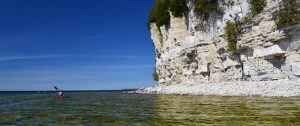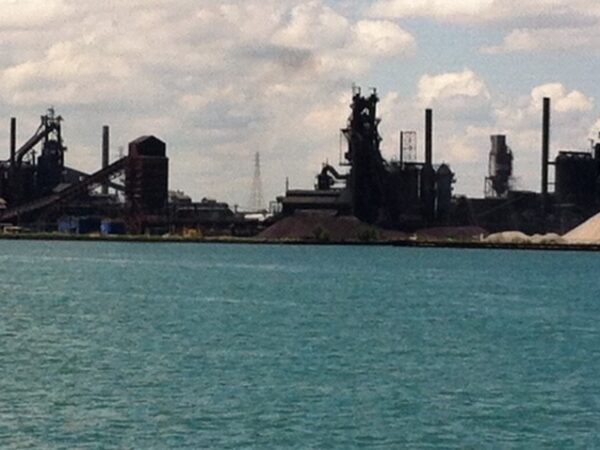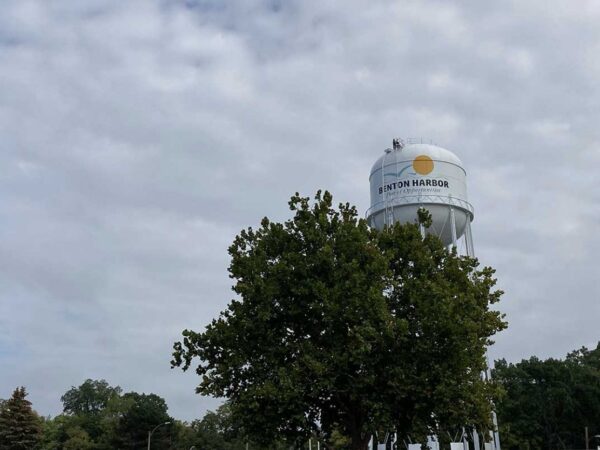
Only one sentence on clean water
When it comes to the Great Lakes, Wisconsin arguably ranks only behind Michigan in enjoying their bounty as well in its responsibility to preserve and protect them. It’s one of three states that comprise the core of the Great Lakes region.
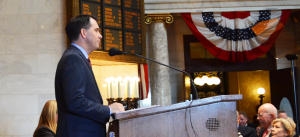
Wisconsin Governor Scott Walker giving State of the State address, courtesy of walker.wi.gov
But that wasn’t evident in Republican Gov. Scott Walker’s State of the State speech last week.
Walker made no mention of the Great Lakes, Wisconsin’s 220 miles of Lake Michigan shore or the state’s Lake Superior border.
None.
Wisconsin’s 15,000 inland lakes didn’t get a mention either.
In fact, conservation and the environment were essentially missing from the speech.
How could that be?
The lakes are an asset worth bragging about, not to mention the economic value they bring. It’s not every state that has an abundance of water that can help spur an economy, the main theme of Walker’s speech.
Great Lakes Now contacted the governor’s office to find out why water failed to make the governor’s highlight reel.
Press Secretary Amy Hasenberg responded, referring to one sentence on water quality.
“Our plan would also help farmers deal with the costs of ensuring that their farming practices preserve clean water in rural areas,” Walker said in the speech.
Walker was referencing a part of his “Ambitious Agenda” to provide an additional $500,000 annually to be used by farmers who are willing to lead in development of conservation practices that would deal with their “water quality challenges,” Hasenberg said.
Like many states, nutrient runoff from farms in Wisconsin pollutes local waterways and is lightly regulated. The programs to develop conservation practices are voluntary.
Water an “afterthought”
Walker’s speech was a ‘no sale’ with the Wisconsin League of Conservation Voters.

Wisconsin League of Conservation Voters, courtesy of conservationvoters.org
In a release, the LCV said “Walker makes clean drinking water an afterthought” and his address “ignores reality.”
“Families in Wisconsin are suffering,” the LCV’s Executive Director Kerry Schuman said.
Walker “plays politics on behalf of his wealthy outside donors” but “the realities of manure pollution, lead poisoning, industrial acid mining and increasing threats to public lands, wildlife, wetlands and the Great Lakes are mounting,” according to Schuman.
Schumann said under Walker, Wisconsin’s subsidies to bring tech-giant Foxconn to the state with thousands of jobs are “a $4.5 billion-dollar crapshoot” that comes from the pockets of taxpayers and at the expense of the environment.
Wisconsin won the coveted Foxconn investment and in addition to the controversial financial subsidies the state will provide, the state relaxed environmental protection of wetlands.
Wisconsin passed a law that permits it to defer to federal wetland standards which are generally thought to be the minimum requirement. The action would streamline the permit process and allow for expedited construction of the Foxconn plant.
It is unusual for states to cede authority over wetlands to the federal government, Detroit environmental attorney Nick Schroeck previously told Great Lakes Now. States have the local knowledge that the feds lack, and more enforcement tools, too, according to Schroeck.
Missed opportunities
The fact that Walker didn’t slip in even a minor Great Lakes mention is actually a missed opportunity.
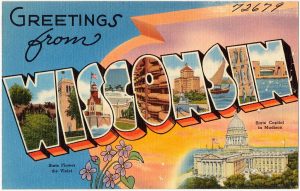
Greetings from Wisconsin, courtesy of Boston Public Library
His speech was all about economic improvement and development since he took office in 2010. Tourism, which would include Lake Michigan, has a $20 billion impact on the state’s economy.
And Walker is the only governor to attend every Great Lakes summit meeting convened by Michigan’s Gov. Rick Snyder. The meetings always have a significant environmental component.
Most Great Lakes governors skip the event depriving the confab of the gravitas it deserves. They send the Lt. Governor or a senior staff member. But Walker attends. Why not tell constituents you’re representing their environmental interests in the region?
By contrast, in his State of the State address last week Michigan’s Snyder, like Walker, hit all the expected economic themes of recovery and growth. But Snyder made a strong statement on Asian carp, touched on Flint and took the state to task for failing to improve recycling.
“Wide-eyed tourist?”
Veteran Wisconsin political observer James Rowen has a theory about Walker’s lack of mention of environmental issues in his speech.
It’s not that he doesn’t care. Who wouldn’t appreciate the state’s abundant natural resources?
Rowen’s theory is that Walker’s view of the environment is akin to that of a “wide-eyed tourist” and not of a governor who has a duty to “protect the people’s land, clean air and water.”
Rowen writes the blog The Political Environment and is a frequent Walker critic.
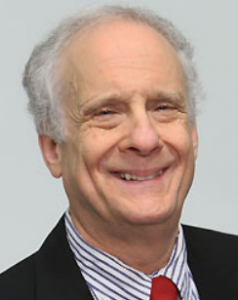
James Rowen, political writer, courtesy of jsonline.com
He says Walker’s perspective allows him “to present a superficial connection to Wisconsin’s rich environmental heritage but be detached from an obligation to protect the state’s natural resource treasures.”
In his seven years as governor, Walker has “substantially weakened environmental protections,” according to Rowen.
During his tenure, Walker has had the support of a Republican legislature willing to work with him on easing environmental regulations designed to facilitate economic growth.
National polling conducted by Pew Research Center shows that 58 per cent of Republicans believe “environmental laws and regulations cost too many jobs and hurt the economy, up from 34% in 2007.” Only 17 per cent of Democrats share that view.
Walker is running for re-election this year and will face voters for the fourth time seeking to be governor including a recall election he won in 2012.


